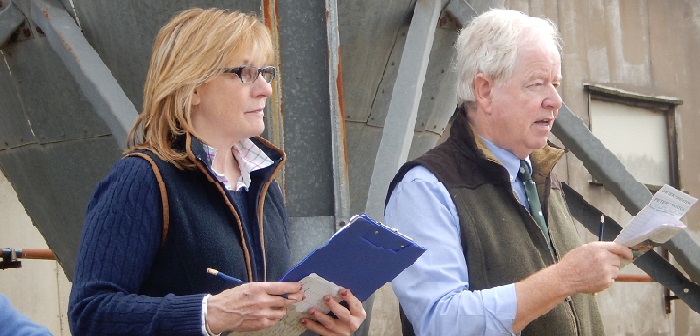With the clocks going back this weekend, it looks as though prices might also be heading in the same direction; and although the SPP miraculously stood-on after a fairly torrid week and remains at 127.84p, there’s no doubt that when spot bacon quotes feed into the system we could see further reductions in the week ahead.
One slightly positive sign is that, despite lacklustre prices, most bacon pigs are finding homes, with some abattoirs very busy and one of the major processors also operating on Saturdays for the time being, which should help to keep on top of numbers. In the fresh meat sector, trade is described as anywhere between dire and not very good.
As a result, where there were bidders for spot bacon, trading was around the 123-125p mark, but once again, “contract is king” and the spot market is no place for the faint-hearted.
Cull sow prices have also taken a downward turn, mainly due to a fall in the value of the euro, which tumbled from its value of 73.52p a week ago to 71.83p on Friday afternoon. As a result, cull sow values moved in a similar direction, losing about 2p on the week, with most bid prices in the 60-63p range according to load size and spec.
Not much joy on the weaner front, which is hardly surprising given the indifferent outlook for finished pig prices in the months ahead, with the latest AHDB ex-farm weaner 7kg average quoted at £32.85/head and the 30kg average easing to £43.25/head.
Once again, however, buyers and sellers should allow for the fact that the AHDB figures include a cross-section of Red Tractor and Freedom Food pigs, and I would suggest that the Red Tractor weaners might be worth about £2 less than the average price and Freedom Foods around £2 more, representing a £4/head differential between the two levels of Farm Assurance – around 6p/kg difference on a finished pig.
The grain market doesn’t seem to be heading in any particular direction at present, with the spot price flip-flopping around the £103 to £105/t mark, although it’s very hard to buy any at this level, especially in Yorkshire, and futures quotes on the LIFFE exchange saw November feed wheat trading at £114/t, January 2016 at £116.45/t, and longer months such as January 2017 at £132.25/t.
And finally, one of my more astute contacts suggested that the UK pig industry is in a very similar position to the UK steel industry, affected by adverse currency values, cheap imports, easier demand and plentiful supply, and no significant premium for a better quality product.
As an industry, we may have to accept we’re producing a commodity product and, as a result, those producers prepared to go the extra mile by achieving Freedom Food standards are not getting the premium needed to cover their extra costs.
However, compared to dairy farmers, pig producers are in a slightly better position and at least they don’t have to milk their herds twice a day!




